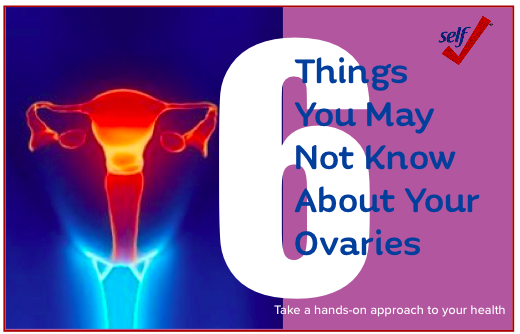medical community words
What the Medical Community is Saying About Self chec
Dr. Paul Calabresi, Professor of Medicine and Chairman Emeritus of the Brown University Department of Medicine, First Chairman of the National Cancer Advisory Board under Presidents’ Nixon, Bush and Clinton and President of the Rhode Island Cancer Council, (among many other important contributions), who passed away in October, 2003 after a valiant fight with cancer, was an active champion of Self chec. Before his death, Dr. Calabresi planned to conduct a pilot study of Self chec in the state of Rhode Island.
*******************
For years I’ve seen brochures in my doctor’s waiting room about testicular and other male cancers and never reached for them. That’s why I was surprised last week, when handed a Self chec kit by someone I know, to find myself reading the information in more detail than ever before. I suddenly realized that I have never really done a self-examination looking for testicular lumps or discussed the question of colonoscopy with my doctor.
I myself am a medical doctor, and you would think I should know these things, however the subject of cancer is a frightening one and one that many people, like myself, face only when they or someone they love have been diagnosed. Preventive self-examination is highly effective, yet still creates anxiety. However last week, on being handed the kit by someone who cares about me, I found myself able to read it calmly and without anxiety. This resulted in my being able to process the information, discuss it with my friend and learn about self-examinations in a way that I have not done before.
I believe there is enormous value in the Self chec process of spreading information from one caring person to another. Rather than just another well-packaged brochure, the Self chec method is in fact an ingenious community based strategy. I look forward to handing packages to the people I care about.
Paul Browde, Assistant Clinical Professor Psychiatry, NYU School of Medicine
The Centers for Disease Prevention and Control applauds your efforts to bring awareness to the importance of early cancer detection. We share your goal to educate as many people as possible to make cancer screening and early detection a routine part of our health care… When you have your finished products, please get in touch with me to discuss ways we can help with the promotion of Self chec.”
Kevin T. Brady, M.P.H., Acting Director, Division of Cancer Prevention and Control,
National Center for Chronic Disease Prevention and Health Promotion (CDC)
Although a physician’s recommendation can be a call to action, most frequently the individual will require special tailored messages appropriate to the individual circumstance and readiness for action. Your concept for utilizing personal messages to individuals through family or loved ones is novel and should be studied and supported by research centers and by service organizations.
Paul F. Engstrom, M.D., Sr. V. P., Population Science, Fox Chase Cancer Center
Recognizing the known benefits of periodic cancer screenings and early detection of lesions, our society is in need of tools to convey and reinforce this vital message; screening and early detection of cancer saves lives.”
“It appears Self chec will help people seek these examinations in accordance with the recommendations of the National Cancer Institute and the American Cancer Society, and this is a very good thing…”
Franco M. Muggia, M.D., Anne Murnick & David H. Cogan Professor of Oncology, Director, Div. of Medical Oncology, Program Director, Kaplan Comprehensive Cancer Center, NYU Medical Center, NYC
I believe that your product Self chec could influence members of the public to become more active in seeking appropriate screening and healthier lifestyles.”
Bernard Levin, M.D., V. P. & Betty B. Marcus Chair in Cancer Prevention, Professor of Medicine, University of Texas,
MD Anderson Cancer Center, Houston, Texas
I want to express my support for your efforts to promote cancer prevention through expanded public awareness. We all realize that the currently available methods for early detection of cancer, while in most cases time consuming and inconvenient, can save lives, and the public must be convinced of the importance of regular preventive assessments. Let me know if I can help this effort in any way.”
Bruce Chabner, M.D., Professor of Medicine, Chief,Hematology/Oncology and Clinical Director of the Cancer Center at Massachusetts General Hospital
Winning the war against cancer requires a multi-pronged approach. Certainly, there is great excitement in understanding the biology of cancer and some new innovative treatments. But early detection remains a crucial part of the battle.
Self chec can help people seek those examinations that have been recommended by the National Cancer Institute and the American Cancer Society.
Mark Pasmantier, M.D., Clinical Professor of Medicine, Chairman, Cancer Committee, N.Y. Presbyterian Hospital, Weil Cornell Campus, New York City
I do believe the ideas you have to spread the word are a unique way to get people involved in being responsible for their own health and the health of loved ones. Let me know it I can help in the future.
Vincent T. DeVita, Jr., M.D., Director, Yale Cancer Center
At our mental health center, where we specialize in treating children, adolescents and young adults, we have seen too many young lives devastated by the impact of losing a parent to cancer. We know the wound is profound beyond words and lifelong. Knowing that some of these tragedies could have been avoided — that some of these parents might have lived if only they understood the importance of prevention and early detection is what motivates me to support your genuine efforts.
Mark A. Levy, Phd., Director, Larchmont-Mamaroneck Community Counseling Center
In addition, Self chec is supported by George Canellos, M.D., William Rosenberg Professor of Medicine, Harvard Medical School and Department of Adult Oncology, Dana Farber Cancer Institute in Massachusetts, Alfred I. Neugut M.D., PhD., Professor of Medicine and Public Health and President, American Society of Preventive Oncology, Steven Itzkowitz, M.D., The Dr. Burrill B. Crohn Professor of Medicine, Director, The Henry D. Janowitz Division of Gastroenterology, Mount Sinai School of Medicine in New York, Robert Porges, M.D., Former Chairman of Obstetrics and Gynecology and presently, Professor and Vice-chairman of Obstetrics and Gynecology, New York University Medical Center/Tisch Hospital, John Seffrin, CEO, American Cancer Society, Jerome D. Waye, M.D., Clinical professor, Mt. Sinai School of Medicine, Past Presidents, American Society for Gastrointestinal Endoscopy & American College of Gastroenterology, Director Of Endoscopic Education, Mt. Sinai Medical Center, Chief of Endoscopy, Lenox Hill Hospital




